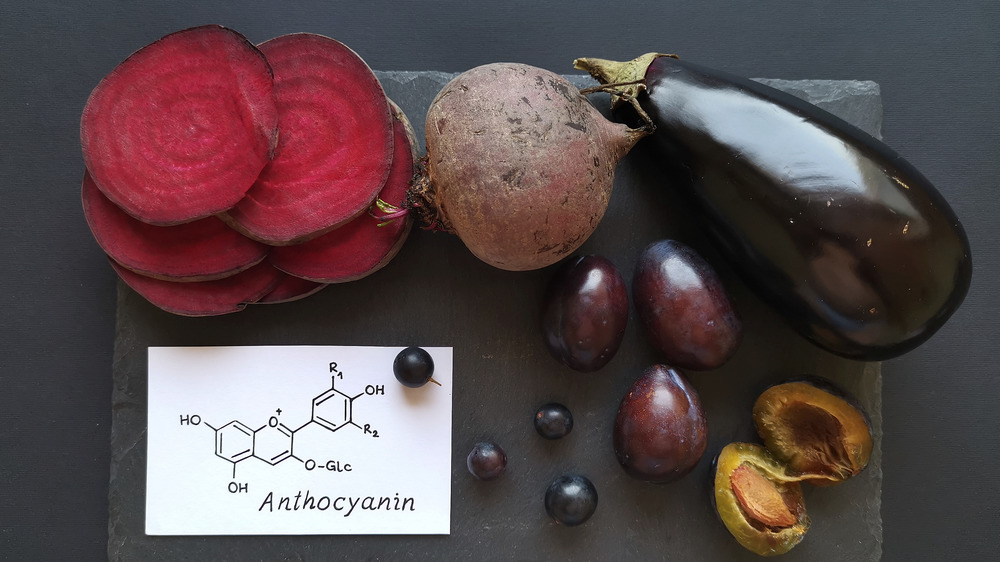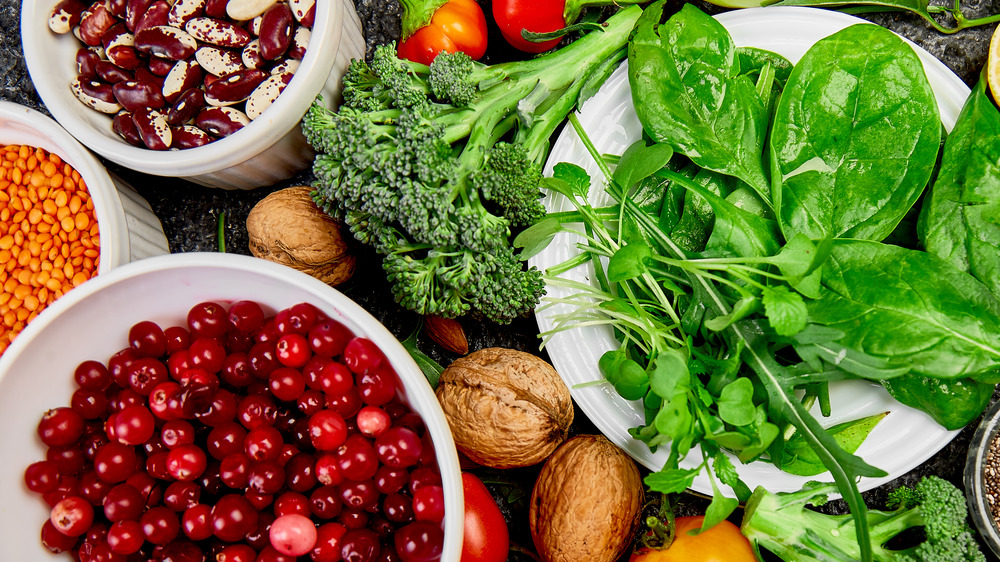The Real Reason You Need Flavonoids In Your Diet
There are certain types of nutrients that appear to be hogging the spotlight. We know vitamins and minerals are an absolute must in our diets. But what about flavonoids? Perhaps if they got their 15 seconds of fame the masses would start looking for ways to pack more of them onto their plates. Here's why they are so deserving of the spotlight.
According to Psychology Today, flavonoids are a diverse group of plant compounds and there are over 4,000 classified types. They are found in most fruits and vegetables as well as coffee, red wines, and chamomile tea. Flavonoids work as antioxidants do and help the body function by fighting off toxic free radicals. In addition to helping us stay healthy, it has been proven that certain flavonoids have antihistamine, antimicrobial, and mood-enhancing properties. Mood-enhancing properties! Their celebrity status in the nutrition world just skyrocketed for us.
Healthline goes on to share the continued benefits of having a diet rich with flavonoids. Studies have shown they help manage high blood pressure, can decrease your risk of type 2 diabetes, and lower your risk of having a heart attack or stroke.
More research on flavonoids may produce exciting results
In addition to their already proven greatness, Healthline notes that research on certain flavonoids proves that they may have the ability to stop cancer cells from spreading. It's exciting news, but more studies must be conducted before they can be considered a productive element of cancer therapy. Food scientist Alyson Mitchell, Ph.D., who studies flavonoids at UC Davis tells Psychology Today about her ambitions in finding out how flavonoids can be used in the most optimal way. "The current hope of scientists is to discover exactly what flavonoids should be eaten in what amounts to fight specific diseases," she says.
Before you assume that you are getting enough of this toxin-fighting plant compound in your diet from fruits and vegetables, consider one thing first. Live Science shares that flavonoids can be lost during the process of cooking and storing food. For example, onions left out on the counter can lose up to a third of their flavonoid amounts after two weeks. And unfortunately, up to 80 percent of flavonoids can be lost if the food is boiled or cooked.
So, the next time you find yourself wondering if you are getting enough vitamins and minerals in your diet, it would be beneficial to think about upping the amount of flavonoids, as well.

